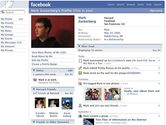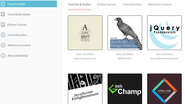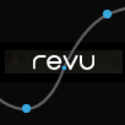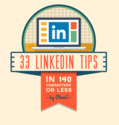-
About
- About Listly
- Community & Support
- Howto
- Chrome Extension
- Bookmarklet
- WordPress Plugin
- Listly Premium
- Privacy
- Terms
- DMCA Copyright
- © 2010-2025 Boomy Labs

 Sharon Gullett
Sharon Gullett
Listly by Sharon Gullett

When you first hear about a fellow academic or receive an email from a person you do not know, what do you do? How do you try to find out basic information about such a person? There is a good chance that you do an online search.

In 2009, anyone who searched my name on the web would first encounter the opinions of a disgruntled Midwestern undergraduate who lambasted me for being an unfair, unprofessional, and essentially ignorant professor. Oddly enough, the student was angry because I had begun incorporating Twitter into the classroom.

digital reputation is a compilation of all of the mentions and instances of you on the Internet. It is important to be proactive in building a strong digital reputation because this is often the first impression that others have of you. This website will provide you with tips, advice, and guidance for building a strong digital reputation.

Employment-related screening tools were the focus of conversation last week in the human-resources class I teach. As I expected, there were plenty of questions about how employers use Internet searches to make decisions about applicant suitability and a fair amount of outrage about how completely unfair employers are when it comes to using digital content to make hiring decisions.

But how often do you think about what you actually do online, how you represent yourself and how you appear to other people who might search for you? In this digital age our online identity is becoming increasingly important as employers, potential partners, creditors and almost anyone with an interest in you can easily look you up on the web.

In fact, thinking about your online profile as a student is useful in other ways. As you develop your knowledge of your subject area, you will probably start to discover various useful and relevant people and sources of information online. You might start to contribute to online discussions, blog posts, twitter conversations and so on.

BrandYourself is the only free do-it-yourself product that empowers you to control what people find when they Google you.

At a time when jobs are hard to come by and it's easy to dig up information that might embarrass a job candidate, some college career centers are offering tips and tools to help students put their best digital footprint forward. Villanova University near Philadelphia offers students a one-credit course on managing their online identity.

Facebook, Twitter and their ilk are digital catnip for hiring managers, but this addiction isn't a harmless buzz: New research shows that what's in our profiles has little bearing on how well we do our jobs, even though a large number of recruiters operate under the assumption that it does.

Keri Wiginton for the Chronicle When Kaitlin Jennrich first walked into her communications seminar last fall, she had no idea that the professor already knew of her affinity for pink cars and Olive Garden breadsticks-and that she planned to share that knowledge with the class.

Interested in learning how to build web sites or improve your web design skills? There's a wealth of resources for you (including our own night school on the topic). Here, in one place is an exhaustive guide to the best tools around, curated by SkilledUp after reviewing over 140 resources available.

Re.vu is a complete rethinking of what a resume can be. You no longer have to cram your experience and expertise onto a plain white piece of paper. Re.vu gives you interactive tools to visually (and dynamically) represent who you are and what you have to offer.


